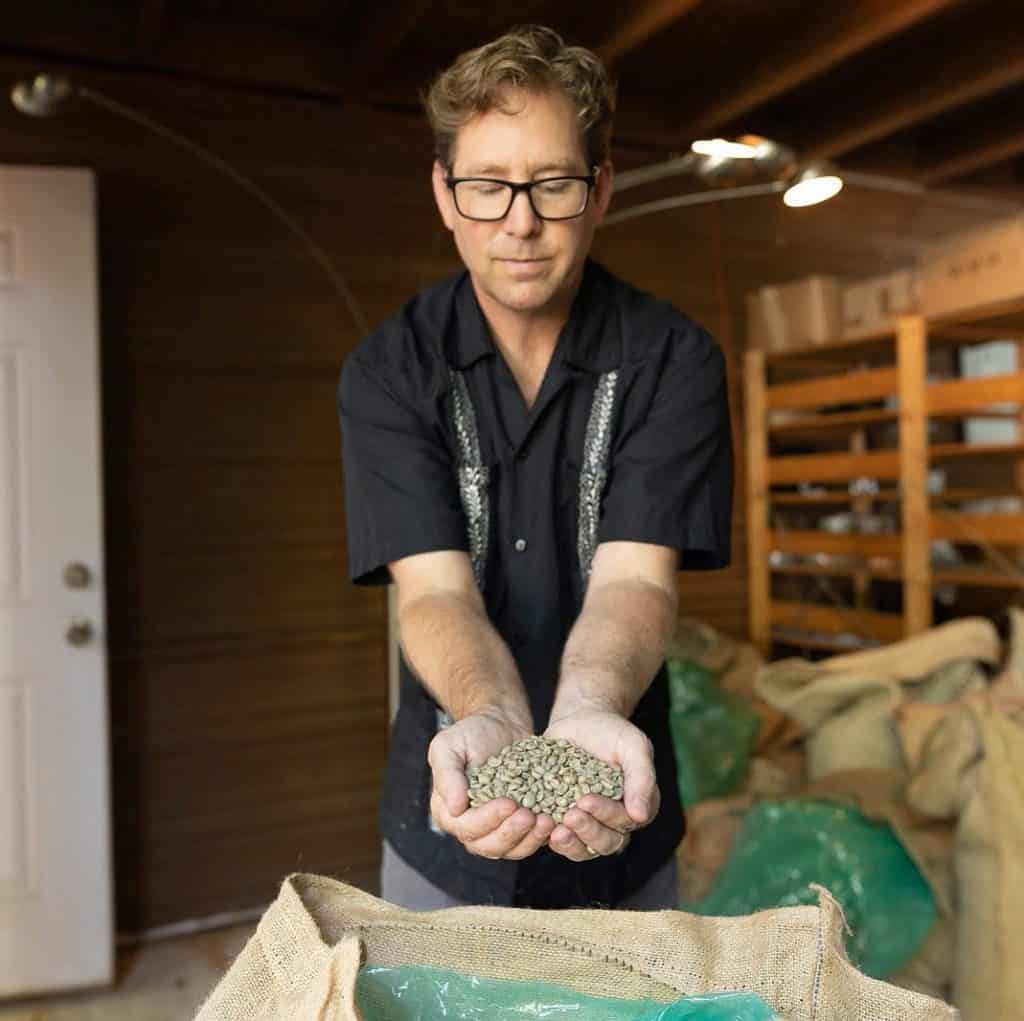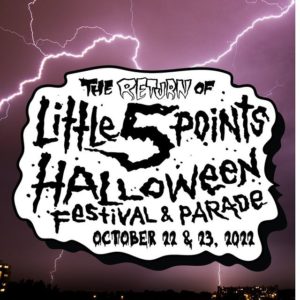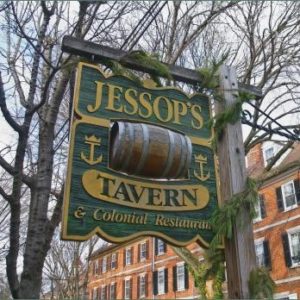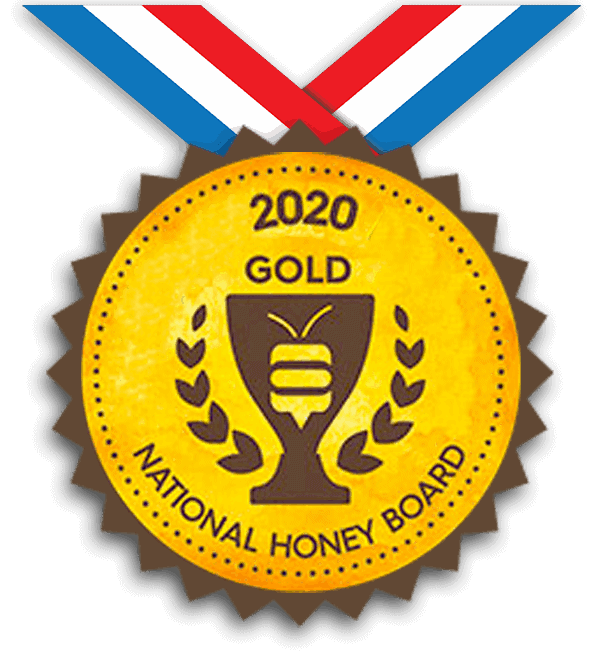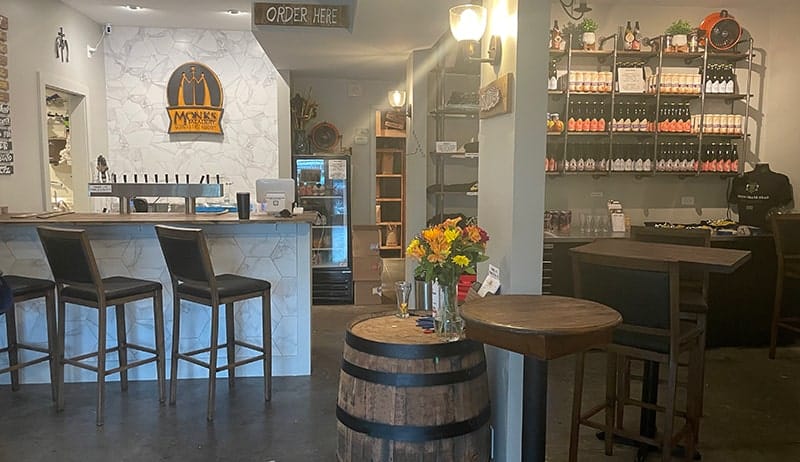Monks Meadery is a secret little taproom underneath a family-owned coffee shop called Java Vino. But what you might not know is that Java Vino is so much more than just a coffee shop, and we’re going to tell you how it started.
Steve Franklin and his wife Heddy Kuhl conceptualized Java Vino in 2001 while they were traveling through Europe. The couple was inspired by European coffee shops that weren’t strictly focused on coffee. Witnessing grandparents hanging out with their grandkids and performers playing guitar while these “coffee shops” served coffee, food, and wine inspired Steve and Heddy to jot down their ideas and inspiration on napkins.
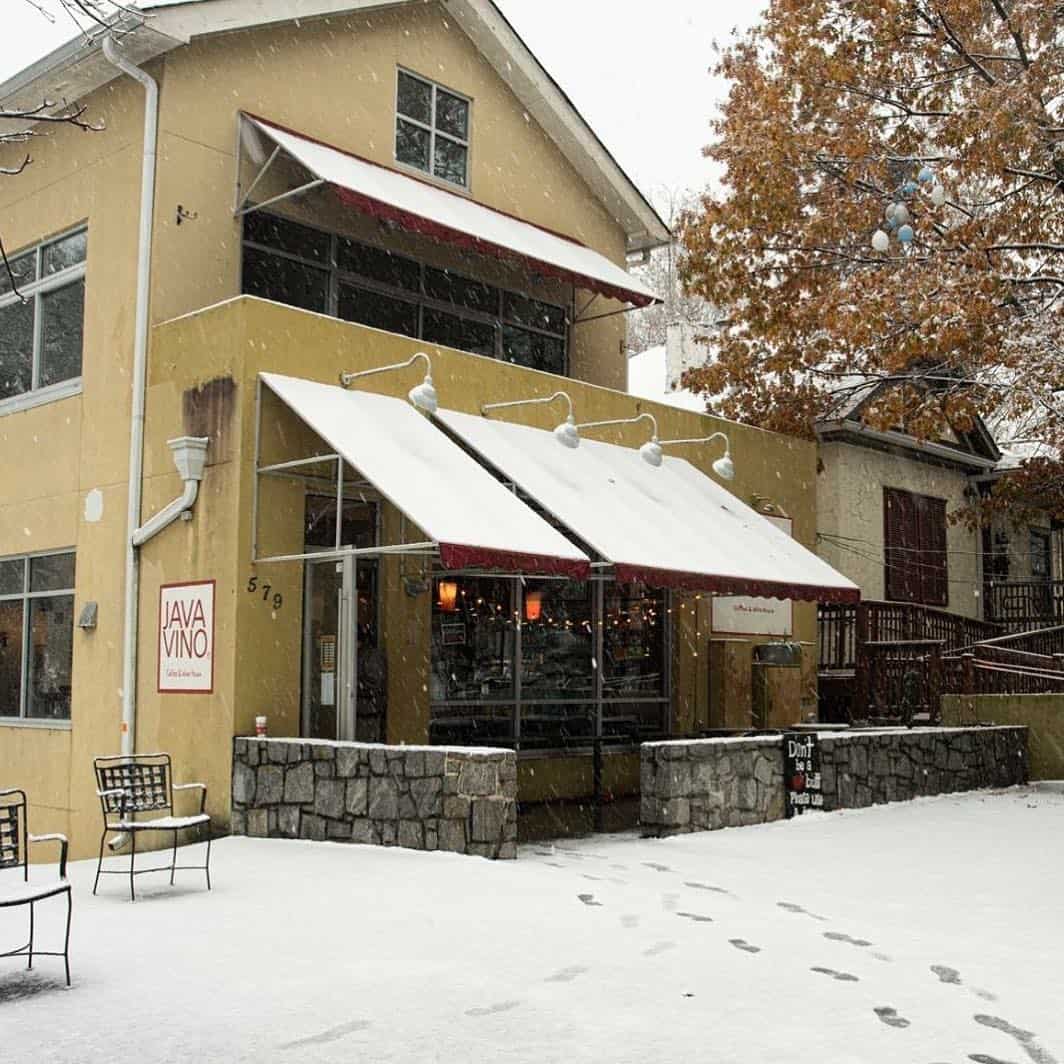 This and featured photo credit @javavino
This and featured photo credit @javavino
The building was constructed to serve as a coffee shop on the main floor, a living space on the top floor, and a garage and storage space on the basement floor. For a while, Steve and Heddy lived on the top floor while operating the coffee shop. When their family outgrew the space, the couple repurposed the top floor into an event space and the basement floor as a secret tap room – Monks Meadery.
In fact, before Justin Schoendorf started Monks Meadery alongside his friend, Martin Key, he worked for a wine distributor. It was there that Justin met Steve, who carried Justin’s wines and eventually the first couple of our meads.
Since its opening, Java Vino has served true seed-to-cup coffee in Virginia Highlands while keeping its business small and personal. But what does small and personal, farmer-direct, and six generations in the coffee business mean? It means more than just growing, processing, roasting and brewing their own beans. Java Vino celebrates and relies on almost 200 years of family tradition, sustainability, and social and environmental responsibility.
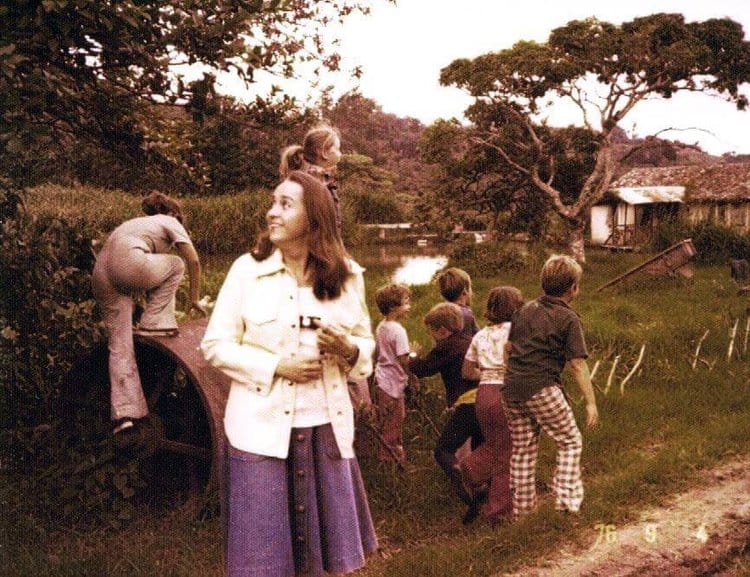 Photo from lahammonia.com
Photo from lahammonia.com
The rich history started in the late 1800s when German immigrants, including the Kühl family, first settled in Nicaragua. In 1974 Eddy and Mausi Kühl acquired a coffee farm which they named La Hammonia, Latin for the German city of Hamburg. While the farm was meant to grow coffee, the family diversified the land for additional purposes, including parts dedicated to a virgin forest, a coffee shade forest, space for livestock pastures and farming, and an ecolodge and restaurant called Selva Negra (black forest) for vacationing tourists.
This diversification not only allows the family to run sustainably, but also allows them to survive financially. Though unforeseen events like natural disasters and pests can destroy anywhere from 10 to 15 percent of the crops in a given year, tourism supplements that income by creating demand for a restaurant that requires produce, dairy, and meat – all of which is supplied by the farm. This allows the estate to employ 300 workers with on-site housing, a school, and a clinic. It also provides food for employee kitchens.
Fun coffee fact: the coffee borer beetle is the most caffeinated organism on earth, consuming the equivalent of 500 espresso shots a day. This makes it the most harmful pest to coffee crops. La Hammonia captures about 2 million coffee borer beetles each year with traps handmade out of recycled plastic bottles.
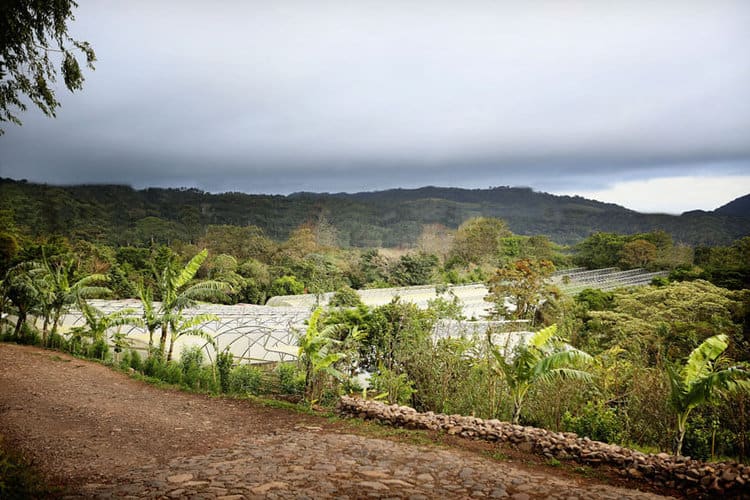 Photo from lahammonia.com
Photo from lahammonia.com
Currently, the coffee farm produces around 500,000 pounds of high-elevation and shade-forest-grown coffee per year. According to Steve, a coffee bean grown at a higher elevation is denser, with beans grown at an elevation of 5,000 feet attaining a 7-8 on the density scale. In contrast coffee grown at sea level is a 2-3 on the density scale. This is important because a denser bean holds up better in the roasting process, which is comparable to cooking a steak. Denser beans are roasted to be dark on the outside but not burned on the inside, whereas less dense beans burn easily on the inside.
Steve also explained that shade-grown coffee means the coffee cherry takes an extra two to three months to ripen. This slower ripening process allows the coffee bean to soak up more juice, delivering a richer-flavored bean. He also emphasized that shade-grown coffee is more than just good for the taste buds: It’s a process that does good for the planet by fighting deforestation. He clarified that you can have shade-grown coffee that is 30%-40% covered by a planted, non-indigenous canopy or you can have shade-forest-grown coffee, in which 70% of it is covered by 3 levels of canopy consisting of indigenous trees.
The land on shade-forest coffee farms hasn’t been deforested and provides an ecological habitat where birds return to the same trees every year. Some shade-forest-grown coffee farms also hold the Bird Friendly Smithsonian Certificate, which means they passed rigorous standards for bird habitats.
 Photo from lahammonia.com
Photo from lahammonia.com
In addition to the Smithsonian certificate, the Selva Negra Coffee Estate is also Rainforest Alliance Certified, meaning the farming process is socially, economically, and environmentally sustainable. About half of Java Vino’s coffee holds the Organically Grown Certification, as well.
In 2007 Java Vino also won the Specialty Coffee Association of America (SCAA) Sustainability Award. The estate’s diversification with the ecolodge, restaurant, and pasture allows almost everything on the farm to come full circle. Almost all waste on the estate from farming to residential gray water is either repurposed or recycled, resulting in fuel, electricity, organic fertilizer and pesticides, and additional irrigation for the farm. This means the monthly aftermath of the entire operation generates only 1 large can of trash.
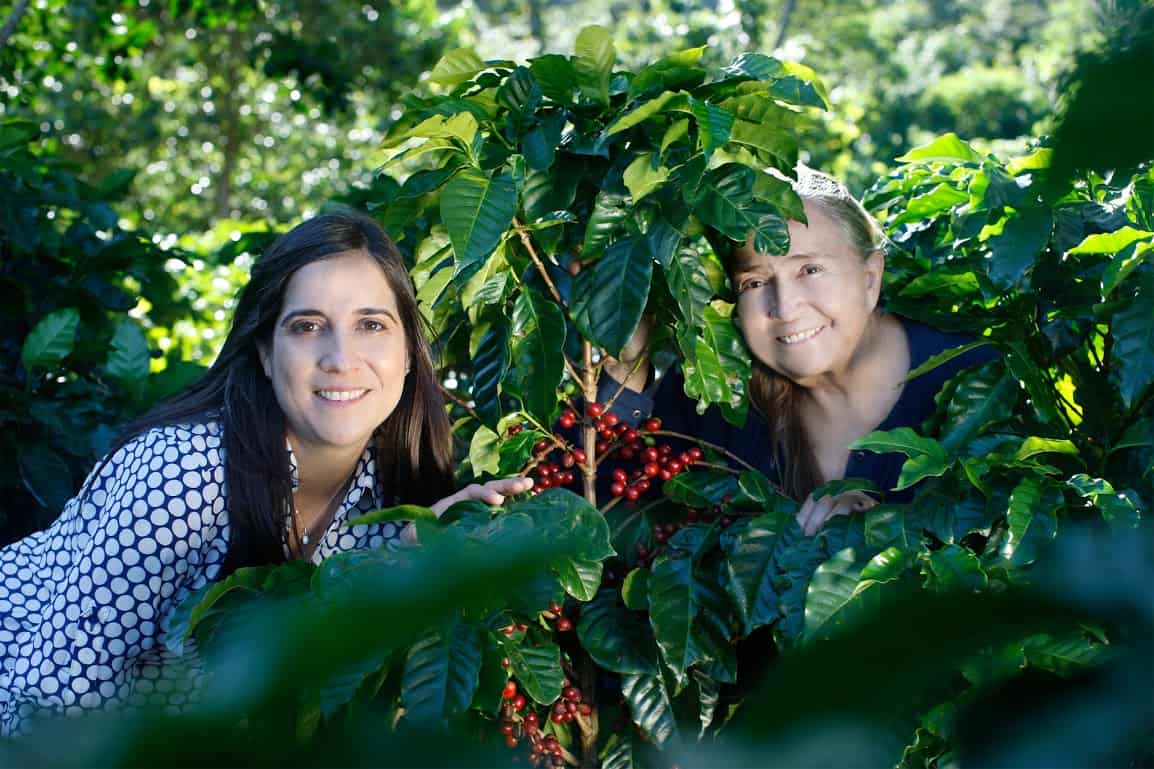 Photo from javavino.com
Photo from javavino.com
Java Vino is more than just a coffee shop: It’s a family tradition with a true farm-to-table and sustainability philosophy. The Kuhl family operates with the future of the planet in mind and hopes to keep doing it for another 800 years. Learn more about Selva Negra Coffee and purchase your next favorite roast from Beanealogy, their family-operated distributor.

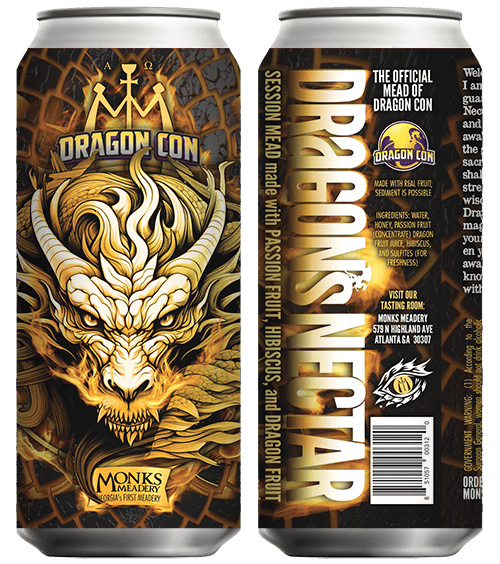
 TRIPLE WINNER at the MEAD CRAFTERS COMPETITION
TRIPLE WINNER at the MEAD CRAFTERS COMPETITION 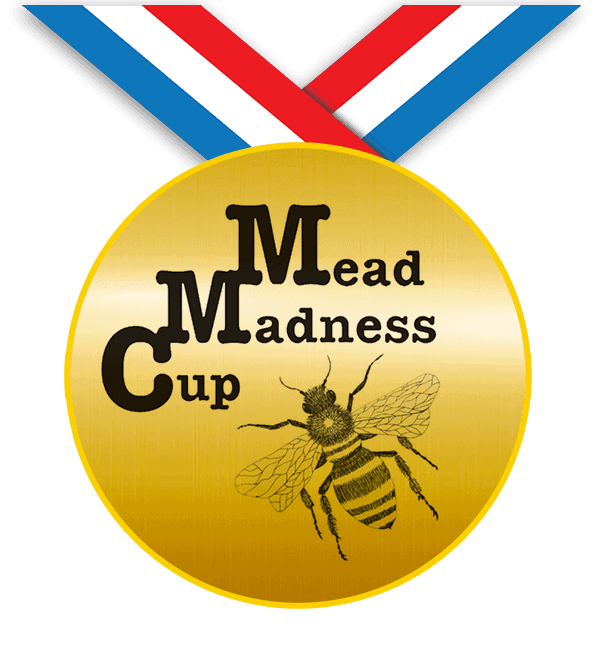 The FIRST AMERICAN MEADERY to MEDAL at the MEAD MADNESS CUP
The FIRST AMERICAN MEADERY to MEDAL at the MEAD MADNESS CUP MAZER CUP AWARD WINNER: TRY OUR AWARD-WINNING MEADS!
MAZER CUP AWARD WINNER: TRY OUR AWARD-WINNING MEADS!